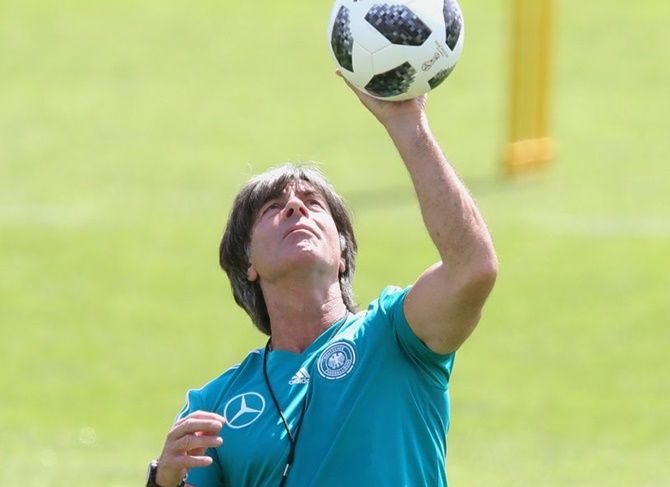
Germany will retain their World Cup title in Moscow to equal Brazil's record of five wins in the tournament, according to a Reuters poll of financial specialists more used to predicting market moves.
In a May 16-31 survey of regular Reuters poll participants from across the globe, Germany's national soccer team got the highest number of nods - 43 out of 145 analysts - to lift the trophy in July.
Brazil placed second with 37 votes, evoking prospects of a final between the two long-term rivals.
Four years ago Germany humiliated then hosts Brazil in a crushing 7-1 defeat that reduced fans clad in yellow, blue and green to tears and stunned silence in Belo Horizonte's Estádio Mineirão.
"Germany have a good combination of skill and discipline and are not overly dominated by any one star player, but rather a high level of players throughout," said Frank Blackmore, chief economist at EFConsult in Johannesburg.
"Hence, my choice of Germany as 2018 winners."
Luiz Roberto Monteiro, a trader at Renascença brokerage in São Paulo, said many people wanted Brazil to win "because there's a lot at stake after the Germany fiasco."
"But I think they are thinking with their hearts. Brazil depend too much on a small number of players, particularly (star forward) Neymar. It's a good team but I don't think they'll get past the semifinals."
Barcelona's Argentinian striker Lionel Messi, who has scored over 600 senior career goals for club and country, is expected to win the Golden Boot - an award for top goalscorer of the championship, last won by Colombia's James Rodriguez in Brazil.
Bookmakers agreed with strategists. The tightest odds were 9/2 on both Germany and Brazil to be crowned champions, and Messi was favourite to win the Boot.
Unfortunately for Russia, the poll suggests it has little chance of keeping the trophy at home after hosting the expensive June 14 to July 15 showpiece. But most respondents said the country would at least make it to the round of 16 and the competition would give a small lift to the economy.
World Cup hosts have only lifted the trophy five times in the history of the 88-year old competition: Uruguay in 1930, Italy four years later, England in 1966, Argentina in 1978 and France in 1988.
UBS sees a 24 percent probability current title-holder Germany wins the July 15 final, with Brazil and Spain the next most likely teams to succeed, with a 19.8 percent and 16.1 percent chance respectively.
The bank's modelling gave a 60 percent chance that one of those three teams would win.
A March survey by JP Morgan, conducted with 100 clients at a Paris conference, also placed Germany as champions.
In the Reuters survey Spain got ten nods, fewer than might have been expected for a consistently high-performance side that won in 2010 in South Africa.
However, they do face a testing opener against European champions Portugal, a match that will probably determine who finishes top of Group B, which also contains Iran and Morocco.
Egypt, known as "The Pharaohs" and returning to the tournament after a 28-year absence, are the underdog nation with the best chance of outperforming.
But that view may have shifted since last weekend's European Champions League final, in which their talisman Mohamed Salah, playing for Liverpool against winners Real Madrid, got injured. He is now a doubt for one or more of Egypt's group games.
Some economists relied on their standard econometric modelling skills to predict the World Cup's outcome.
"I guess the point is that in a rational world in which the form book rules, one of Brazil or Germany should win," said Peter Dixon at Commerzbank who ran 10,000 stochastic simulations.
"But somewhere amongst the simulations there may well be a universe in which Saudi Arabia beats Panama in the final. The very fact there is a random element is one of the reasons why we may well be wrong, and why sports like football hold such a deep fascination."













 © 2025 Rediff.com -
© 2025 Rediff.com -